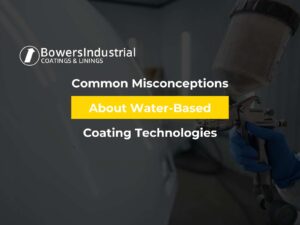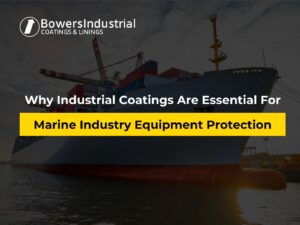Pipes are essential in various industries, but they face the threat of corrosion and damage due to environmental factors. Pipe coating acts as a shield, protecting these vital conduits. It is a process that involves applying layers of protective materials to prevent corrosion and extend the life of pipelines.
Let’s go through the detailed information about pipe coating.
Understanding Pipe Coating
Pipe coatings are specialized layers applied to the outer and inner surfaces of pipes to safeguard them from corrosion, abrasion, and other detrimental elements. These coatings act as a barrier, preventing contact between the pipe and its surrounding environment.
The significance of pipe coatings lies in their ability to significantly prolong the life of pipes and reduce maintenance costs. By preventing corrosion, they ensure the integrity and efficiency of pipelines over time.
Types
- External Coatings: External coatings shield the outer surface of pipes from environmental factors like moisture, chemicals, and soil. Common materials used for external coatings include epoxy, polyethylene, and fusion-bonded epoxy.
- Internal Coatings: Internal coatings protect the inner surface of pipes from corrosion caused by transported materials. These coatings enhance flow efficiency and maintain the quality of transported substances.
Process
- Surface Preparation: Before applying coatings, pipes undergo rigorous cleaning to remove dirt, rust, and other impurities. Surface preparation ensures proper bond of the coating materials.
- Application Techniques: Coating can be applied through methods like spraying, roller coating, dipping, brushing. Each technique is chosen based on the type of coating and the pipeline’s specifications.
- Curing and Inspection: Once applied, coatings are cured to ensure they bond effectively to the pipe surface. Inspection follows to verify the coating’s quality and coverage.
Advantages
- Corrosion Prevention: Pipe coatings form a protective barrier, preventing corrosion and extending the lifespan of pipelines, ensuring they remain functional for a longer time.
- Enhanced Durability: By shielding pipes from damage, coatings increase their durability and structural integrity, reducing the need for frequent repairs or replacements.
- Environmental Protection: Coatings not only protect pipes but also prevent leaks and spills, reducing environmental harm and ensuring safety.
Common Pipe Coating Materials
- Epoxy Coatings: Epoxy coatings are versatile and resistant to corrosion, making them suitable for various industries where pipelines are exposed to harsh conditions.
- Polyethylene Coatings: These coatings offer flexibility and protect pipes from abrasion, making them ideal for pipelines that undergo movement or bending.
- Fusion-Bonded Epoxy (FBE) Coatings: FBE coatings provide strong sticking to pipe surfaces, offering long-term protection against corrosion and damage.
Applications
- Oil and Gas Industry: In the energy sector, pipe coatings are vital for safeguarding pipelines against corrosion caused by the transportation of oil and gas.
- Water Transportation: Coatings ensure clean and reliable water supply by preventing contamination and deterioration of water transport pipelines.
- Chemical Processing: Industries handling chemicals rely on pipe coatings to protect pipelines from corrosion and maintain safety standards.
Challenges and Solutions
- Application Challenges: Challenges in applying coatings include ensuring uniform coverage and dealing with complex pipeline structures. Advanced application techniques and equipment help overcome these hurdles.
- Maintenance and Repairs: Regular inspection and maintenance are essential to address wear and tear of coatings. Prompt repairs ensure continuous protection.
Future of Pipe Coatings
- Innovations and Research: Ongoing research aims to develop more efficient and eco-friendly coating materials and application techniques, ensuring better protection and sustainability.
- Sustainable Coating Solutions: Future coatings will likely prioritize environmentally friendly materials and processes, aligning with global sustainability efforts.
Conclusion
The role of pipe coatings in preserving pipeline integrity cannot be overstated. These protective layers not only combat corrosion but also ensure prolonged pipeline lifespan, reduced maintenance costs, and enhanced environmental safety. As industries evolve, the continuous innovation and focus on sustainable coating solutions promise a future where pipelines remain resilient, efficient, and environmentally conscious. With ongoing advancements, pipe coatings will continue to be a cornerstone in safeguarding critical infrastructure and sustaining industries worldwide.
FAQs
What is the Primary Purpose of Pipe Coatings?
Pipe coatings serve as protective layers applied to pipes to prevent corrosion, extend their lifespan, and maintain pipeline integrity. These coatings act as a barrier against environmental elements, chemicals, and abrasion.
How do Pipe Coatings Prevent Corrosion?
Pipe coatings create a physical barrier between the pipe surface and corrosive elements present in the surrounding environment or transported materials. This barrier prevents direct contact, thereby inhibiting corrosion and preserving the structural integrity of pipelines.
What are the Common Materials Used in Pipe Coatings?
Some common materials used in pipe coatings include epoxy, polyethylene, and fusion-bonded epoxy (FBE). These materials offer varying degrees of resistance to corrosion, abrasion, and environmental factors based on the specific requirements of the pipeline.
What Industries Benefit from the Application of Pipe Coatings?
Pipe coatings are essential in various industries such as oil and gas, water transportation, chemical processing, and more. They ensure the safety, efficiency, and longevity of pipelines in these sectors, reducing maintenance and operational costs.




